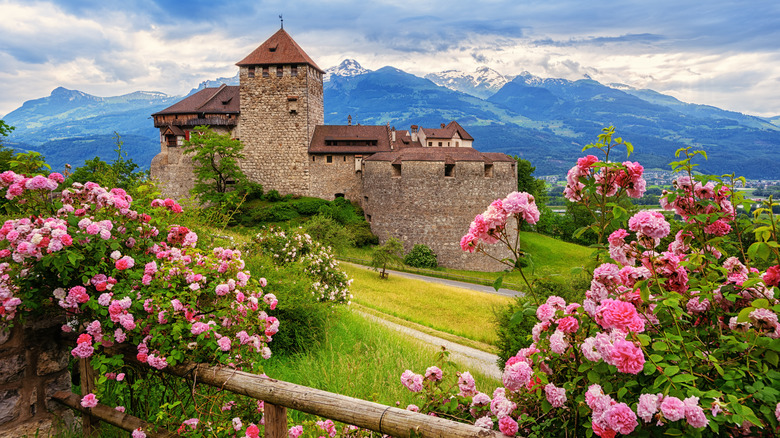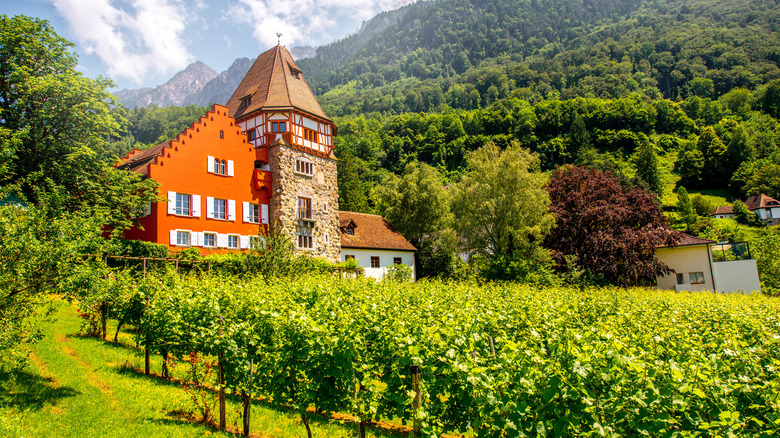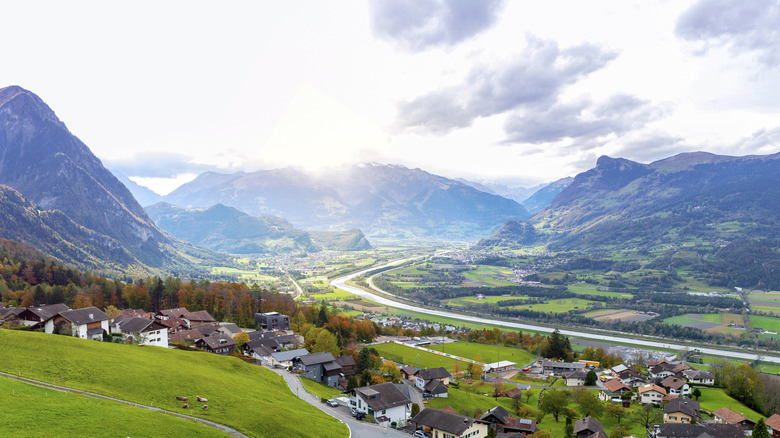The sixth smallest country in the world, Lichtenstein is a tiny yet culturally wealthy European country. Sandwiched between Austria and Switzerland, it’s an overlooked principality often neglected in favor of Swiss cheese and Viennese coffee houses. Liechtenstein may not exude the same charismatic energy of its larger neighbors, but it claims a captivating canvas framed by the Central Alps and Rhine Valley. It’s a town of simplicity, covered in emerald valleys dappled with hamlets and scattered farm cottages that provide a sense of civilization within the vast mountainous terrain.
With a population hovering around 40,000, it’s a town best explored on foot, and Lichtenstein’s road signs even direct wayfarers to neighboring communes using walking times. Despite its small size, this Germanic country communicates in at least three different dialects, but the friendly locals are quick to share their hospitable spirits. Liechtensteiners enjoy a high standard of living as one of the world’s richest countries per capita, with low taxes, no crime, few crowds, and plenty of fresh air blowing in from the surrounding wilderness.
Perhaps best of all, The city observes a day of rest every Sunday, with local businesses closing to spend time with family and recuperate from a long week’s work. It’s easy to picture making yourself home in this country’s simplistic lifestyle, yet far more difficult to achieve. Obtaining citizenship in Liechtenstein requires a minimum of 30 years of residency, and applicants must renounce citizenship to all other countries.
A city of picturesque charm

A symbol of the country’s capital, Vaduz Castle is one of the most iconic sites in Liechtenstein. Situated atop a sloping hill in the capital of Vaduz, this stronghold was originally constructed as a fortress before the addition of living quarters was commissioned to house the Princely family. From below, the castle presents an illusion of being carved into the cliffside, backed by a sea of pines and rocky outcrop — a fanciful sight as if brought to life from a storybook.
An equally symbolic part of Liechtenstein’s heritage, the Princely Wine Cellars of the Prince of Liechtenstein commemorates the country’s viticulture scene that dates back to the 14th century. The Herawinger winery in Liechtenstein is part of the Princely domain that also covers terroir in Austria. Visitors to the winery are invited to roam the royal vineyard or enjoy wine tastings in the cellar of their signature Pinot Noir and Chardonnay.
If you’re looking for a photo-worthy spot, Rotes Haus in Mitteldorf is a particularly eye-catching structure. Nicknamed “The Red House,” this late medieval-style cottage is perched on the hillside above a sea of vineyards. Fashioned from stones and red clay, its bright hue is even more visible against the contrasting vineyards that characterize the neighborhood. This picturesque village is a pocket of history, containing traditional architecture from the country’s earliest days in the 14th century. The land surrounding the collection of wooden chalets is drenched in wildflowers, rose gardens, and cobbled lanes.
Transverse the Alps on the Liechtenstein Trail

There are few better ways to experience this small hilltop country than the Liechtenstein Trail. This nature-rich pathway weaves through all 11 of Liechtenstein’s municipalities and showcases the best of the nation from a panoramic perspective atop the Alps. Culinary delights, emerald vineyards, and gothic castles are just a few hidden gems that await travelers who embark on the journey. The trailhead begins at the Liechtenstein Center in the heart of town and runs south to north from Balzers to Schaanwald. The first stretch transverses the tiny town of Triesenberg. About an hour and a half from Vaduz, Triesenberg might just be one of the most enamoring villages in all of Europe (while petite, it’s the largest municipality in Liechtenstein!).
The Valduz stretch passes the Hilti Art Foundation and Museum before circling the Princely vineyards and past the Vaduz Castle. On the road from Schaan to Nendeln, forested glades offer stunning views of the Three Sisters mountain range and the remains of an old Roman fort. Continuing north toward Austria, the stage from Nendeln to Ruggell guides travelers along the Historical Eschnerberg Trail and parallels the Church Hill of Bendurn. This small village is believed to be the founding site of Liechtenstein, dating back to the 6th century. The final stretch from Ruggell to Schaanwald offers scenic views of Ruggelier Riet, 220 acres of natural reserve, and a topography rich in wetlands. The trail concludes at the border between Liechtenstein and Austria.

